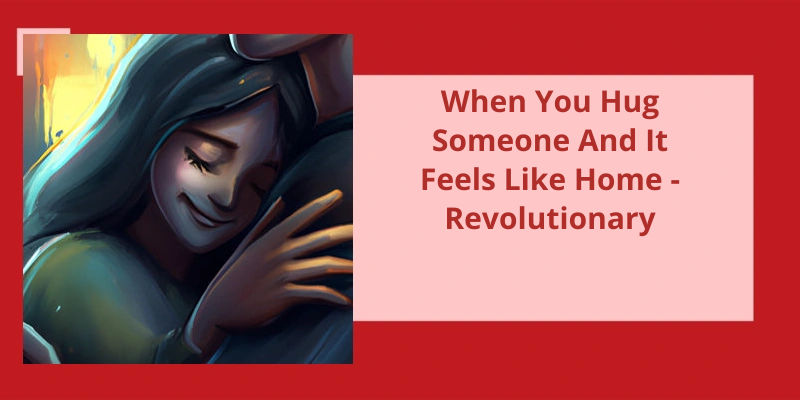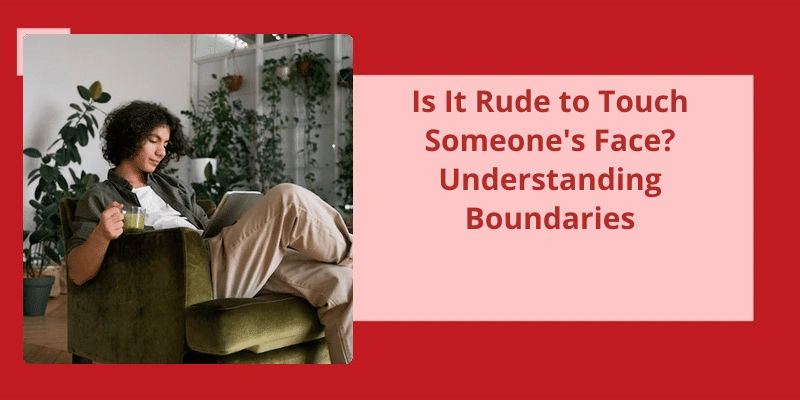Friendship is a beautiful thing that brings joy, laughter, and support to our lives. We cherish the moments spent with our closest friends, sharing each other's successes and failures, and confiding in each other our deepest secrets. However, not all friendships are created equal, and sometimes we encounter a friend who only seems to show up when they need something. In such situations, it's essential to evaluate the relationship and determine if this is truly a friendship worth holding onto.
How Do You Know if Someone Doesn’t Care About Your Friendship?
It can be painful to realize that someone you consider a friend doesn’t value your friendship as much as you do. More often than not, people tend to hold onto friendships that are no longer meaningful or fulfilling for fear of being alone. However, it’s essential to recognize the signs that your friend isnt invested in the friendship. One of the telltale signs of a friend who doesn’t care is when theyre never around in difficult times. If your friend is always absent when you need them the most, it’s a clear indication that they don’t care.
Another sign that your friend doesn’t care is when theyre always busy or making excuses to avoid spending time with you. Sometimes, it’s a valid reason that your friend isnt available, but if it’s a consistent pattern, it’s time to reassess the friendship. A true friend will make time for you, even when their schedule is hectic. A friend who doesn’t care will always have something else to do or a reason not to be around.
A true friend will be there for you, even in hard times, to lend a listening ear or a helping hand. But if your friend is always unavailable or disinterested in helping you when you need it the most, it’s a clear indication that your friendship isnt a priority to them.
A lack of effort or reciprocation is another signal that your friend may not care about the friendship. If youre the one always initiating contact, making plans, and putting in the effort to keep the friendship alive, it’s time to reconsider the relationship. A balanced friendship requires effort and engagement from both parties, and if it’s not happening, it’s a clear sign that the friendship isnt valued.
Lastly, if your friend consistently dismisses your feelings or accomplishments, it could be a sign that they don’t care about your friendship. A true friend celebrates your successes and supports you through the challenges. If your friend always downplays your achievements or is unsympathetic when youre struggling, it could be a sign that theyre not truly invested in the friendship.
How to Handle a Friend Who Doesn’t Care About Your Friendship
If you’ve a friend who doesn’t seem to value your friendship, it’s important to address the issue with them. Try to have an open and honest conversation about how you feel and see if there’s an underlying reason for their behavior. If they continue to disregard your feelings, it may be time to reassess the friendship and consider whether it’s worth maintaining. Remember, it’s important to surround yourself with people who care about and support you.
Maintaining healthy relationships with people who only reach out when they need something can be difficult, but there are ways to handle the situation. While avoiding their calls and texts or cutting them off completely may seem like an easy solution, being upfront and honest with them is key. Read on to discover effective strategies for dealing with individuals who only contact you when they want something.
How to Deal With People Who Only Call When They Need Something?
It can be frustrating and disheartening when it seems like someone is only reaching out to you when they need something. Whether it’s a friend, family member, or acquaintance, feeling used can make any relationship feel one-sided and unsatisfying. While it can be tempting to ignore these calls or give in to their requests, it’s important to set boundaries and prioritize your own well-being.
One approach is to be direct with the person and explain how their behavior is affecting you. Let them know that you feel like they only contact you when they need something and that it’s putting a strain on your relationship. This can be a difficult conversation, but it may help the other person see your perspective and adjust their behavior.
If confronting the person doesn’t feel like an option, you can also distance yourself from them. Avoid answering their calls or messages, and don’t reach out to them anymore. This can send a message that youre not available to them whenever they want something, and it can help you prioritize your own needs and well-being.
Finally, when the person does reach out and asks for a favor, it’s important to weigh the decision carefully. It’s okay to say no if you don’t feel comfortable or if it’s not something youre willing or able to do. Remember that you don’t owe anyone anything, and it’s important to prioritize your own needs and boundaries.
Ultimately, dealing with people who only call when they need something requires setting clear boundaries and prioritizing your own well-being. Whether it means having a difficult conversation or stepping back from the relationship, it’s important to take care of yourself and not let others take advantage of your kindness.
Navigating the Decision to End or Limit a Relationship With Someone Who Only Contacts You When They Need Something
Making the choice to end or reduce a relationship with someone who only reaches out to you when they need something can be a difficult decision. It’s important to weigh the pros and cons of maintaining such a relationship and decide what’s best for your own well-being and mental health. It may be helpful to communicate your feelings with the person and establish clear boundaries, but ultimately, you’ve the power to choose who you allow in your life and how much energy you give to them.
Source: How to deal with people who only contact you when they need …
It can be difficult when a friend only talks about their own problems and doesn’t show much interest in your life. However, there are ways to handle the situation that don’t involve simply tolerating it or cutting the person off completely. By trying to shift the dynamic of the conversations, setting boundaries, and assessing your own priorities and needs in the friendship, you can find a way to maintain a healthy relationship while still taking care of yourself.
How to Deal With Someone Who Only Talks About Their Problems?
We all have that one friend who always seems to talk about their problems and never seems to listen when it’s your turn to speak. It can be frustrating and draining to constantly be on the receiving end of their venting and negativity. However, there are ways to deal with this situation without completely cutting ties with your friend.
One approach is to ask your friend for advice on how to solve your own problems. This tactic can help steer the conversation away from their issues and towards a more balanced exchange. If they’re unwilling or unable to offer any advice, it’s a good indication that they may not be as invested in your friendship as you thought.
Another strategy is to share more about yourself with your friend. Try to open up and talk about your own life experiences, thoughts and feelings. This can help create a more reciprocal dynamic in which your friend feels more invested in your friendship and more open to talking about things other than their own problems.
It’s important to look for signs that your friend genuinely cares about you, even if they may not always express it in the most obvious way. For example, if they listen attentively when you do talk about yourself or offer support and encouragement when you’re going through a difficult time, this may indicate that they value your friendship and are willing to make an effort to improve the balance in your conversations.
If the imbalance in your conversations continues despite your efforts, it may be time to directly ask for more balanced conversations. Let your friend know how you feel and why it’s important to have a more reciprocal dynamic. If your friend is receptive, this can be a turning point in your friendship and lead to a more positive and fulfilling relationship.
If your friend doesn’t change their behavior and continues to dominate your conversations with their problems, it may be necessary to distance yourself. This could mean spending less time with them or limiting the topics you discuss. It’s important to prioritize your own well-being and mental health in any friendship.
In extreme cases, it may be necessary to end the friendship altogether. This decision shouldn’t be made lightly, but if your friend is consistently draining your energy and not giving anything in return, it may be necessary for your emotional health and overall well-being. Remember, it’s okay to prioritize your own needs in a friendship and surround yourself with people who bring positivity and balance to your life.
Having a friend who ignores your calls can be a frustrating and disheartening experience. However, it’s important to handle the situation with care and directness in order to address the issue and mend the relationship. Rather than placing blame or criticism, it’s best to approach your friend and simply ask why they’re avoiding your calls. By opening up a respectful and honest conversation, you may be able to address any misunderstandings or issues that have arisen and work towards a resolution.
What to Do When Your Friend Ignores Your Calls?
Losing contact with a friend can be one of the most challenging feelings that anyone can experience. The missed calls, texts, and emails can truly affect ones mental health and self-esteem. So, what can one do when they feel that their friend is ignoring their calls? Well, it goes without saying that the first step should be to try and directly communicate with your friend.
However, it’s essential to approach the conversation without blaming or criticizing them. It’s never a good idea to start with an accusatory tone that could put them on the defensive. Instead, begin the conversation by expressing your feelings and letting them know how you feel about the situation. It’s essential to avoid attacking or blaming them for any behavior that’s causing you distress.
The purpose of initiating a conversation with them is just not to blame them but to understand whats going on and to find a way to resolve the issues. This can be done by asking them why they’re avoiding your calls, texts, or emails. It’s important to be respectful and patient while they express their thoughts and feelings. It’s important to understand that every human being deserves the space and privacy to take care of their mental and emotional health.
If there is, in fact, an issue that your friend might be going through, or something they want to talk about, offer a listening ear and provide emotional support. Create a safe space for them to share their feelings without any judgment or interruption. Remember, this is your chance to be there for them, and in doing so, you’re strengthening your relationship with them.
It’s also important to mention specific examples of times youve attempted to contact them. This can help them understand your perspective and open up the conversation about why there might be an issue. Keep in mind that communication is two-way, and both sides should have the chance to speak and be heard.
Asking for help and support from friends is a part of any healthy relationship. However, when our friends reach out to us only when they need something, it can start to feel like our friendships are one-sided. In order to determine whether these interactions are genuine or manipulative, we need to take a closer look at the context of these requests and evaluate the way our friends treat us in general.
Why Do Friends Only Call When They Need Something?
It isn’t uncommon to feel used and unappreciated when friends only call when they need something. It can make you feel like they only value you for what you can give them. However, it’s important to remember that there could be a variety of reasons why they reach out to you only when they need something. It could be that they simply don’t have anyone else to turn to, or they may not realize how their behavior is affecting you.
In some cases, friends may call you only when they need something because they feel comfortable asking you for help or support. They may see you as a reliable and dependable person who always comes through in a pinch. While it’s great to be there for your friends, it’s equally important to set boundaries for yourself and ensure that your own needs are being met. This may mean saying no sometimes or asking for help when you need it.
They may not value your friendship for what it is, but instead see you as a means to an end. If this is the case, it’s important to recognize this behavior and address it. You may need to have a conversation with your friend about how their behavior is impacting you and set clear boundaries. If they continue to take advantage of you, it may be time to re-evaluate the friendship.
Whats important is that you recognize and acknowledge your own feelings about the situation. If you feel uncomfortable or used, it’s important to speak up and address the behavior. If you feel valued and appreciated, then it may be a sign of a strong and trusting friendship. No matter the reason, it’s important to take care of yourself and ensure that your own needs are being met in any relationship.
It can be frustrating and hurtful when friends only call when they need something. However, it’s important not to jump to conclusions or make assumptions about their motives. Instead, take the time to reflect on how their behavior makes you feel and communicate your feelings openly and honestly. By doing so, you can strengthen your friendships and ensure that they’re built on a foundation of trust and respect.
Ways to Set Boundaries With Friends Who Only Call When They Need Something.
To set boundaries with friends who only call when they need something, communicate your needs and limitations clearly and assertively. Let them know that you value the friendship, but you also need to prioritize your own needs and time. Avoid being overly accommodating or apologetic, and be willing to say no or suggest alternative ways to help them connect with resources or support. Remember that healthy friendships involve mutual give and take, and it’s okay to set boundaries to maintain balance and respect.
Conclusion
In conclusion, it’s important to recognize that every friend is different and has their own communication style. While some may only reach out when they’ve a problem, this doesn’t necessarily mean they value your friendship any less. It’s essential to approach these situations with empathy and understanding, and to communicate openly about how you both prefer to maintain the friendship. Ultimately, having a strong support system, even if it may not be constant, can provide comfort and aid in navigating life's challenges.






